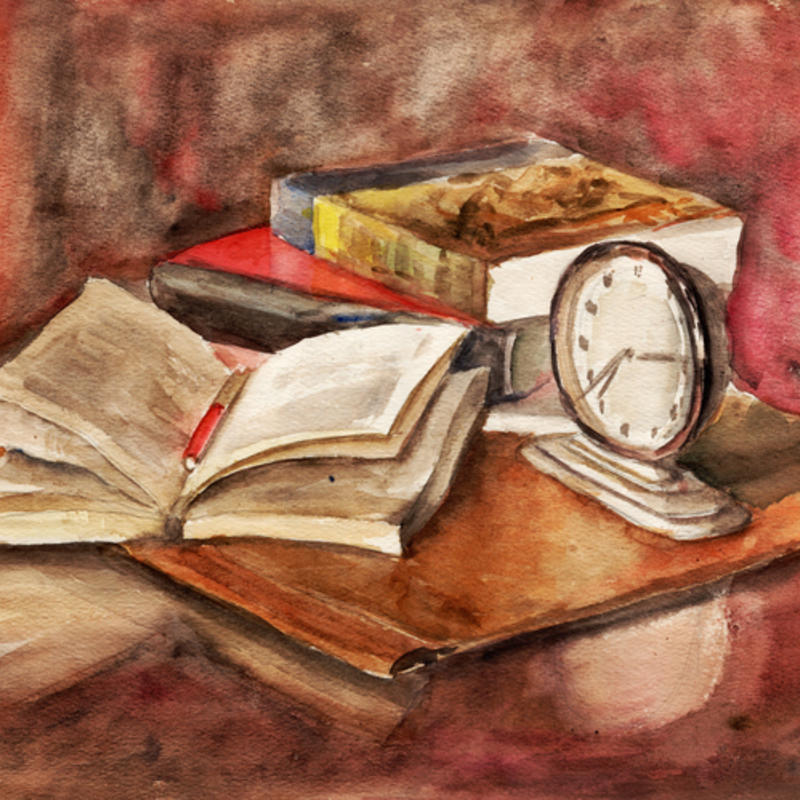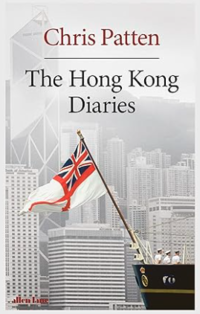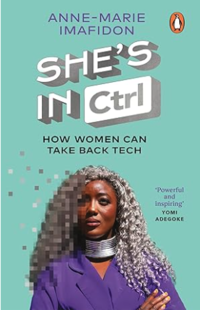OFF THE SHELF: MARCH 2024

OFF THE SHELF: MARCH 2024
Hong Kong diaries, women in tech, espionage, Ukraine, and the biggest bank fraud in Dutch history
Published: 1 March 2024
Author: Richard Lofthouse
Share this article

The Hong Kong Diaries by Chris Patten Penguin 2024 (paperback, February 2024)
You can profitably start at the end, where Oxford’s Chancellor, former Governor of Hong Kong (Balliol, 1962) writes, ‘What the Chinese communist regime has done there is wrong and wicked. We should say that clearly.’
And he does, especially in a new Postscript, which forms an elegant essay of perhaps 25 pages and should be required reading for everyone everywhere, students, alumni, postholders, the global public.
The diaries themselves are immensely wonderful not because they offer a chronology ending in British withdrawal from its last real colony, and thus the end of the old Empire, but because we get a running insight into human affairs laced with great humour.
As the measuring stick of what was to come, former UK Prime Minister Tony Blair got it all wrong by assuming that entry into the World Trade Organisation in 2001 would propel China towards peaceable democracy. Chris’ diary, meanwhile, seems to have got it right without being dogmatic. Two years before the handover of Hong Kong, he wrote that he had met a Professor Wu who had already been locked up for his views. Wu held the pessimistic view of Hong Kong’s future, while suggesting that how much the place would be ‘wrecked’ rested on how much people would be willing to fight for it. Chris replied, ‘But what, I asked, will the communists do if people do fight for it? We both have an uneasy feeling that we know the answer.’
That was in 1995.
Such prescience gives the narrative a curious quality of foresight then, renewing it as a very valuable document now. I daresay, had Lord Patten insisted that Hong Kong was in the best possible hands and all was well, we wouldn’t be into paperback editions.
But that’s what we all love about the man, good humour laced with moral candour and political reality.
Hearing how he was doused in delicious bloody marys and fruit cake and claret once aboard the Royal Yacht in 1997, having sailed out of harbour forever, and indeed treated to almost Royal forms of salute from a still existent Royal Navy: that section is extraordinary because it shows how rapidly Britain has declined even since the late 1990s. And it was hardly powerful then.
But how one wants to taste the claret and fruit cake: even the cover of the book gleams with a Royal Yacht now gone, the sun forever set on a series of institutions and people that in no way were one-sidedly bad, or good.
Hong Kong was a bright ray of post-1945 hope. This memoir shows it to have been so for its human flourishing and not only its miraculous economic growth.
From the perspective of 2024, the diaries are themselves robust outposts of humanity and the whole thing starts to feel like a tragedy because we already know the ending, and it isn’t a happy one.

She’s in CTRL by Anne-Marie Imafidon (Transworld, 2023)
The tech world might feel beyond reach, particularly if you're a woman. Women are woefully under-represented in tech, comprising just one quarter of the UK STEM workforce. Technology, as a sector, has been shaped and populated by mostly men. That’s a deplorable state of affairs that this book seeks to cure through no-nonsense advice and insight.
In She's In CTRL, computer scientist Dr Anne-Marie Imafidon (Keble, 2006), a dynamic advocate for women in STEM, calls time on women being cut out of the tech story. Technology is not an unchangeable force, nor the preserve of an elite, she argues. It is in our homes and in our hands. In her powerful book about women, tech and daring to dream, Dr Imafidon shows we have more agency than we think, drawing on her own experience and the stories of other pioneers and innovators who have,against the odds, transformed technology.
The world needs more women in tech and, in her inspiring narrative, Dr Imafidon shows not only why this is but how we can all play our part.

The Assassin by Tom Fletcher (Canelo, March 2024)
The Principal of Hertford College (Hertford, 1994) is on a literary roll, this espionage thriller a follow-on to his first ‘Diplomat Thriller’ The Ambassador, from May 2023. In this instance he blends a rapidly moving sequence of settings from Kenya to the UN to Jordan, as the protagonist tries to protect his daughter. Billed as ‘perfect for fans of Robert Peston, Ken Follett and Tom Bradby’ Fletcher throws in ecological risk as a further tilt to 2024. Formerly a foreign policy advisor in No.10 Downing Street to Tony Blair, Gordon Brown and David Cameron, and from 2011 to 2015 the British Ambassador to Lebanon, Fletcher is a Visiting Professor at New York University and author of two further works of nonfiction.

Collisions by Michael Kimmage (Oxford University Press, March 2024)
This is an astute book, cleanly written and demanding our attention as the Second Anniversary of Russia’s illegal invasion of Ukraine has just passed. While the outcome of Russia’s invasion of Ukraine cannot be known, Kimmage’s conclusions are a compelling interpretation of history that offer clear pointers, one of which is a stalemate outcome like Korea, with a line on a map and perpetual irresolution, fear and loathing on both sides of it. A Professor of History at the Catholic University of America and former Ukraine/Russia planning staff at the US Department of State (2014-16), Kimmage knows what he is writing about both from first hand encounter and long learning. He is very strong on the deeper historical identities at play, saying in one aside that ‘Obama and Biden are clearly the sons of Harry Truman, and Putin is clearly the son of Joseph Stalin; in their way, they are all sons of the Second World War.’ In no other book can one see so clearly the way one conflict sets up the next, whether through false analysis or mutual misunderstanding. Consequences of the war are also talked about. Whether it is ‘won’ or ‘lost’, and by whom, he argues, there will be no resolution of world views. Russia like China wants to attack Liberal Democracy. Ukraine has staked its future on being Western. Europe’s future still rests on America whether or not America cares to play that role. If they don’t play it, expect a white-knuckle ride. But in any case it is awful: the world has already a moment of ‘fragmented international politics, high inflation, collapsed arms control, and a global instability unseen since the end of World War Two.’

Under Nazi Noses: How a Dutch Banker Stole Millions from the Nazi-Run State Bank, and Raised $1 Billion for the Resistance by John Tepper Marlin (Boissevan Books, 2024)
This is a masterful translation into English for the first time, of Erik Schaap’s original 2006 Dutch language biography of Walraven van Hall, whose astonishing story deserves a much bigger audience.
Hall was born into a centuries-old Amsterdam banking family. When Hitler invaded the neutral Netherlands in 1940, Walraven joined the anti-Nazi party. When that was banned, he joined the Resistance. He collected money, then borrowed money, and finally, in desperation, he stole money from the Dutch State Bank, which was under Nazi Occupation control. His largest source of income was from forging Dutch Treasury bills, which were exchanged for real ones in the Dutch State Bank vaults, under Nazi noses. It was the biggest bank fraud in Dutch history. Walraven was betrayed, caught by his NaziSicherheitsdienst pursuer for something else, and executed. But the Nazis never figured out how Walraven raised a billion dollars in 2024 money. The full story is told here for the first time, for a non-Dutch English-speaking audience. It is translated and annotated by John Tepper Marlin (Trinity, 1962) with more than 750 new endnotes that explain Dutch terms and historical references.
Marlin adds, in reference to recent current affairs, ‘Alexei Navalny and Walraven van Hall shared something—they both had the potential to be hugely successful in the acquisitive roles of banker/lawyer, but they viewed their status as a responsibility rather than an opportunity to amass power and Things.’

What do you think? By Ken Weir (Austin Macauley, 2023)
A physician by career, Ken (Pembroke, 1961) was born in World War Two but ends his poetry collection reprinting a poem about his uncle’s death in World War One, aged 18, in 1918.
To get there, poems cover personal matters such as transience and grief and love and loss. Some are addressed to his wife or his sons, or friends at times of tragedy.
But there is a steady beat of international affairs such as a series of incredulous poems, each dated to the time they were written, addressing Blair and Bush’s ‘Christian’ assault on Iraq in 2003. And the lunacy of Trump. And other poems like them.
When it all comes down to it, the final poem about being shot down flying over the Western Front in 1918, age 18, is still locked into a heroic mode that jars in light of Sassoon and co since, never mind the reappraisal of the trenches that took place in the 1960s. But the point made is the senseless death and the collapsing of time occasioned, one might guess, by Russia’s assault on Ukraine. His final words are a commentary on that poem as a record of senseless death at a terribly early age: ‘…it is striking how much has changed and yet how much stays the same from one generation to the next. What do you think?’
Off the Shelf typically concerns books where there is an Oxford connection, whether the place, the University or of course the author. Our editorial selection rests on books appealing to the broadest alumni audience.
For more recommended books from Oxford academics and alumni, head over to the @oxfordalumni social channels on Instagram, Facebook and X.
Alumni can claim 15% discount in any Blackwell's store with a My Oxford Card.
Alumni can claim 20% discount at Oxford University Press.
Join the Oxford Alumni Book Club at: www.alumni.ox.ac.uk/book-club















